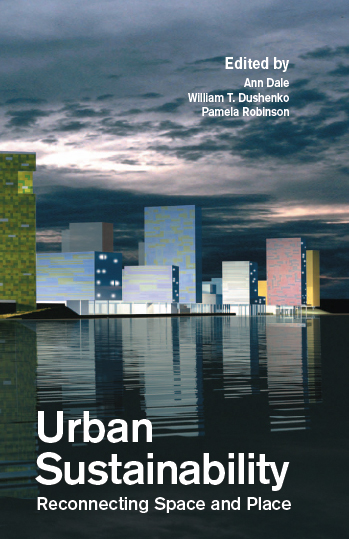SCI launches infrastructure costs and urban growth management guide!
Meeting the infrastructure needs of a rapidly growing population can often overwhelm the capacity of a city to pay for new infrastructure while maintaining its existing stock of roads, water and wastewater facilities, schools and other public facilities and services. Tackling these problems begins with local governments and their stakeholders and citizens making better choices on growth management – how, when and where a city should grow.
 Urban Sustainability: Reconnecting Space and Place is a recently release book on sustainable urban planning created through 12 contributors and three primary editors, Ann Dale (Canada Research Chair in Sustainable Community Development, Royal Roads University), William T. Dushenko (Vice-President Academics at Yukon College), and Pamela Robinson (School of Urban and Regional Planning, Ryerson University).
Urban Sustainability: Reconnecting Space and Place is a recently release book on sustainable urban planning created through 12 contributors and three primary editors, Ann Dale (Canada Research Chair in Sustainable Community Development, Royal Roads University), William T. Dushenko (Vice-President Academics at Yukon College), and Pamela Robinson (School of Urban and Regional Planning, Ryerson University).